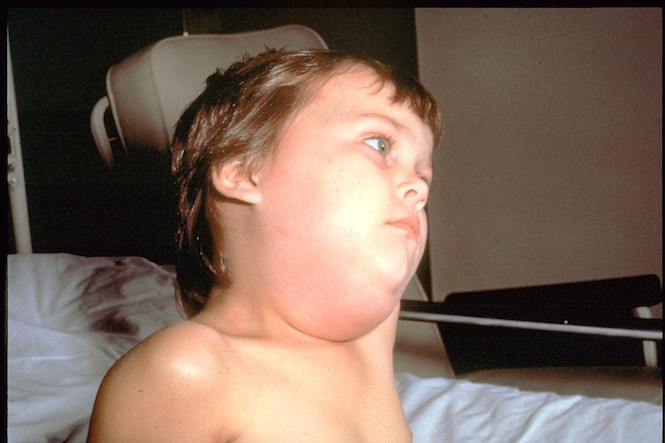Video: Mumps
This video may take a few moments to load.
(Dr Maryann Heather, Southseas Health Clinic, South Auckland, NZ)

Low or no data? Visit zero.govt.nz, scroll down the page then click on our logo to return to our site and browse for free.

This video may take a few moments to load.
(Dr Maryann Heather, Southseas Health Clinic, South Auckland, NZ)
All children in New Zealand should receive immunisations for mumps as part of the National Immunisation Schedule at 15 months and 4 years of age as part of the MMR vaccine. However, a number of children and adults aged between 10 – 29 years have not been fully vaccinated and are at risk of catching mumps. Find out more about mumps.
Check with your GP or nurse to see if your child has received both immunisations. If they haven’t, get them immunised as soon as possible. Immunisation is free. If your child was born somewhere else or you are not sure whether you or your child has had two doses of MMR, it’s safer to get vaccinated as there’s no additional risk to having a third dose.
If your child is under 4 years of age, ask your GP or nurse whether they should have their second dose of MMR earlier.
Mumps is a virus so antibiotics won’t help. Once someone has been diagnosed with mumps, treatment is aimed at relieving their symptoms until they recover. The most common symptom is painful swelling in one or both salivary glands just under the ears and behind the jaw. The swelling develops over two or three days before getting better.
Other common symptoms include fever, sore throat, loss of appetite and headache. Mumps is spread from an infected person by saliva or mucous droplets when coughing, sneezing, or talking. It can be spread through face-to-face contact within a meter, or by touching an object infected with saliva and mucous, such as a used tissue or keyboard.
Most people with mumps develop only mild symptoms, but sometimes there can be serious complications. Men and adolescent boys can experience pain and swelling in their testicles, which in rare cases can result in infertility. Women in their first 3 months of pregnancy who develop mumps are at increased risk of a miscarriage. Mumps can also cause meningitis, resulting in inflammation of the brain and surrounding tissue in rare cases.
Getting immunised helps to prevent you and your whānau from catching mumps, and it also helps to protect others who are too young to be immunised or those who may not have immunity.
You are considered immune if you:
If your child has mumps, they should be kept home from school or early childhood services for 5 days after swelling develops. This will help prevent the spread of mumps in your community. If your child is still unwell after 5 days they should remain at home until they are well.
If you come in contact with someone who has mumps, and you have never had mumps or haven’t been fully immunised against it, you are required to be in quarantine at home. This means you cannot attend early childhood centres, school, work, sporting events, social activities or shopping malls or use public transport. The quarantine period starts 12 days after you first come in contact with someone who has mumps until 25 days after you were last in contact with them.
Credits: Healthify Editorial Team. Healthify is brought to you by Health Navigator Charitable Trust.
Page last updated: